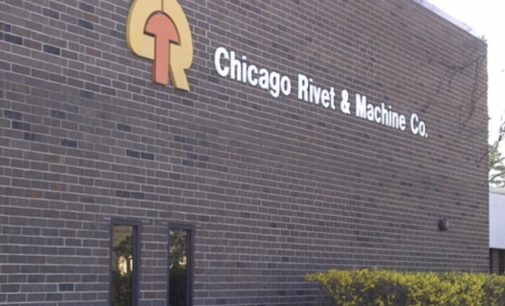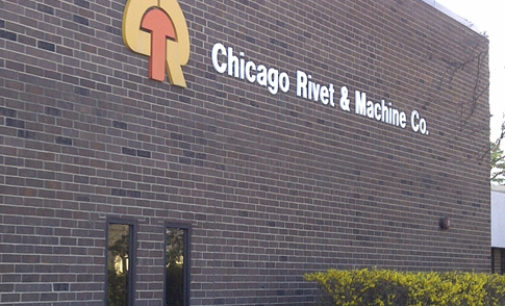Sales hurt by “particularly weak” sales to automotive customers “due to the global economic slowdown impacting many foreign countries.”
Tag "chicago rivet"
Ongoing trade disputes and higher steel prices from tariffs cause double-digit declines in sales and profit.
Chicago Rivet & Machine Co. reported sales dropped 12.1% to $7.6 million in the first quarter of 2020 “due to reduced demand for fastener segment parts, especially from automotive customers as the impact of the coronavirus pandemic (“COVID-19”) took hold.”
“We have experienced increases in steel prices and other materials over the past year that have negatively impacted our gross margins and remain a concern as further increases are expected.”

The company said fastener segment sales reflected growth in each quarter, with much of that growth coming from non-automotive customers.

“In addition to higher raw material prices, we have also incurred higher than expected wages in the current year due to the tight labor market.”
“We have experienced increases in steel prices, our primary raw material, in recent months that have negatively impacted our gross margins and remain a concern as further increases are expected.”

“Improvement in automotive sales and the addition of a number of non-automotive customers in the second half of 2017 contributed to the revenue increase in the first quarter.”
“The automotive sector is the primary market for our fastener segment products and the sales declines in the third quarter and year to date primarily relate to reduced sales to certain large automotive customers,” the company stated in its quarterly SEC filing.

"Based on the current economic environment, we don’t believe overall business conditions during the second half of the year will be markedly different from those of the first half."

Fastener segment revenues rose 3.4% despite a decline in U.S. auto and light-truck sales during the quarter.

Fastener segment sales grew 0.16%, supported by modest growth in domestic automobile and light truck sales.

“The increase in sales combined with favorable raw material prices resulted in improved margins,” the company stated.

